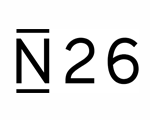Cheques are hardly ever used, owing to the risk and expense of processing them, and you may have difficulty persuading your bank to issue cheques.
There are two kinds of bank transfer, depending on whether you’re instructing the bank to pay money to someone else from your account ( virement) or authorising the bank to let someone take money from your account ( domiciliation), and slightly different forms are used to process the two types of transfer.
If you want to make a payment from your current account, you fill out a transfer form to instruct your bank to transfer money from your account to the account of the person or company you wish to pay. Your bank usually provides you with a number of these forms, pre-printed with your name and bank account number. You fill in the spaces for the name of the payee, his bank account details and the reason for the payment, along with the amount to be paid. You must sign the form, and keep the stub or carbon copy as evidence of payment. You then send the transfer form to your bank, not to the payee, and the bank makes the payment for you. Most banks will give you freepost envelopes for sending transfer forms or you can take them to a bank yourself. Payment is usually made within a few business days of the bank’s receipt of a transfer order, but most banks recommend that you allow five days for payment.
Often when you receive a bill ( facture) in the post, it includes a transfer form with the company’s bank details and the amount to be paid already filled in. You simply need to insert your own bank details and sign the form before giving or sending it to your bank (not back to the company).
To arrange for a standing order ( ordre permanent) contact your bank with the relevant payment information, including the bank account number of the person or company you want to pay. Standing orders are particularly handy for recurring payments such as your rent (in fact, your landlord may insist upon it) and utility bills. Where the monthly amounts vary, you can arrange to be sent a copy of the bill about a week before the scheduled payment so that you can contact your bank if you dispute the amount to be paid.
All forms of transfer can be made through a variety of ‘self-banking’ services now offered by most banks in Luxembourg. You can set up, authorise and change direct transfers, pay your bills and make transfers between accounts (including international transfers via the SWIFT system) using the phone, fax, bank machines or your home computer. Some banks require you to download their software for generating payments or making other sorts of transaction that require validation. Other banks have secure websites where you can make almost every kind of transaction normally possible at a bank machine, except of course withdraw or deposit cash.
This article is an extract from Living and Working in Holland, Belgium & Luxembourg.


